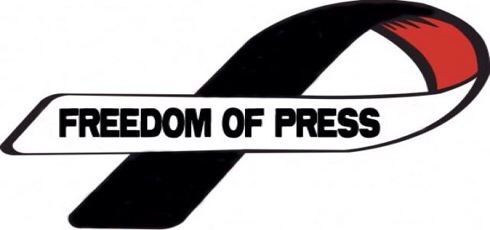Journalists Meet: Political Correctness – From The Editor’s Desk
Welcome to the second session of ‘Journalists Meet.’ Today we will be looking at conduct of the media on issues adjoining the topic ‘political correctness.’
It is real that ‘political correctness’ has a good and a bad side.
As for the good side, it encourages writers to be sensitive to other people’s feelings.
How? I will explain.
The good side of political correctness enables writers to follow principles of objectivity, thus advising them to leave out their bias, comments, and opinions from the story completely.
In essence, it guides writers to be thorough in what they write concerning others.
The bad side is that it produces clumsy phrases, seeks to hide realities behind euphemisms and it sometimes seems more interested in evading criticism than its express meaning.
To this, I emphasized it must be avoided. Of course, political newspapers may have reasons to follow suit. They should because it is incumbent of them to unfailingly propagate the views of their respective parties. They are always seen as dodging information criticizing their interest, but run after those going against their opponents.
Generally, political correctness guides you say what has happened rather than describing things.
I have been urged to tell you all that the use of too many adjectives when writing straight news stories creates room for views and opinions to sneak in.
It is fact that description makes a story look as if the writer is making opinionated statements rather than reporting facts.
Now, let’s look at an organization which seeks to help the old, but gets outraged by the use of ‘old people’. Yes, it is a believable fact that it is hard to see alternatives for ‘old people’ – the elderly, seniors, senior citizens, pensioners, retirees.
In this case, the best question to ask is: does the age of the people actually matter to the story? With this in your mind you can easily make informed judgement and fit in words that suit the accuracy and objectivity when you write stories.
Time is however not to our favour at all. It will be better if you will take cognizance of pointers on political correctness:
- Say what has happened or what people are doing. Don’t bother with the ‘correct’ description: ‘Action Aid supplies seed to farmers in Ghana,’ not ‘Action Aid’ has helped Ghanaian farmers achieve food security’. You will have no justification to saying that, trust me.
- Be sensitive to people’s feelings; provided you can achieve this without writing clumsy sentences. Remember in our previous class I told you, busy readers don’t have time for awkward writing at all.
It is preferably ok to say ‘people with disabilities’ than to say ‘disabled people’.
‘Getting disabled people accepted in society’ was changed to ‘getting people accepted in society despite their disabilities’.
- Don’t be patronizing to readers or the people you write about. It can cause real offence. By this I mean, report the facts and stick to it. Avoid having your biases creep into the story. Political correctness rightly attacks it.
Bye, see you in our next class.
Stay with Sierra Express Media, for your trusted place in news!
© 2011, https:. All rights reserved.






